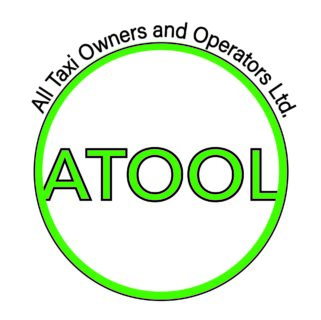ATOOL provides deputation to the Economic and Development Committee of Toronto
(Start video of deputation at 5:11)
Dear Members of the Economic and Business Development Committee,
Thank you for the opportunity to speak today. My name is Behrouz, and I have been a dedicated taxi operator for the past 36 years.
As a concerned citizen and a long-time participant in the vehicle-for-hire industry, I believe that this review is a pivotal step in ensuring the safety, fairness, and sustainability of our local transportation ecosystem.
First and foremost, I would like to express my appreciation for the committee’s commitment to examining the current state of vehicle-for-hire services.
With the rapid technological advancements and changing consumer preferences in transportation, it is imperative that our regulations and policies remain up-to-date and adaptable.
This review presents an opportunity to enhance our transportation infrastructure and, in turn, benefit both drivers and passengers.
I would like to highlight several key areas that I believe should be central to this review:
Fair Competition: A level playing field is essential for fostering healthy competition among various transportation providers. Fair pricing and licensing standards can help ensure that all operators, whether traditional taxi services or rideshare platforms, can coexist and thrive.
Accessibility: Ensuring that transportation services are accessible to all members of our community, including those with disabilities, is a fundamental aspect of any vehicle-for-hire framework. The review should assess and improve accessibility options within the industry.
Environmental Considerations: Given the growing concerns about environmental sustainability, the committee should explore ways to incentivize and promote eco-friendly vehicles within the vehicle-for-hire sector, such as electric or hybrid options.
Economic Impact: An examination of the economic implications of vehicle-for-hire services is also essential. This includes assessing how these services contribute to local economies, job creation, and tax revenues.
I would like to share my experiences and insights regarding the transition to net-zero emissions and electric vehicles (EVs) within the taxi industry.
Over the last 18 months, I have been operating EVs in my taxi fleet, and this experience has not only alleviated my initial concerns but has also proven to be highly beneficial. I’d like to highlight some of the key advantages I’ve observed:
Cost Savings: Operating an EV for my taxi has significantly reduced my daily expenses. While a traditional gasoline-powered vehicle could cost anywhere from $25 to $50 a day in fuel, an EV typically incurs only $4 to $10 a day in charging expenses. These savings have made it easier for me to manage my vehicle-related costs.
Environmental Benefits: EVs are not only cost-effective but also environmentally friendly. They produce zero tailpipe emissions, contributing to cleaner air and reducing the carbon footprint associated with transportation.
Business Advantages: The adoption of new technology has provided me with a competitive edge in the taxi industry. Passengers are increasingly seeking eco-friendly transportation options, and offering EV rides can attract more business.
While the benefits are clear, I am also aware of some challenges and drawbacks, such as limited travel distance, the need for technical expertise in repairs, and parts availability. However, I firmly believe that these challenges can be overcome with a well-structured plan.
One example of such a plan is to establish a large fleet of electric taxis, which would enable negotiations with car manufacturers for favorable deals and the training of mechanics by manufacturers. Additionally, it would ensure a stable supply of parts and technical expertise. Collaboration with government agencies and the corporate sector is also essential to facilitate this transition successfully.
The overarching goal of this transition to net-zero emissions is to mitigate the harmful effects of poisonous gases on the environment and combat climate change.
I have developed a comprehensive plan for the taxi industry’s transition to electric vehicles, and I am eager to share it with you.
I would like to offer my support in providing input, data, and insights from my experience in the industry to assist the committee in its review process. I believe that a collaborative approach, involving stakeholders from all sectors, will result in a comprehensive and effective set of recommendations.
I appreciate the Economic and Business Development Committee for undertaking this critical review of the vehicle-for-hire industry. I look forward to following the progress of this review and to contribute to the development of policies that will benefit our community as a whole.

